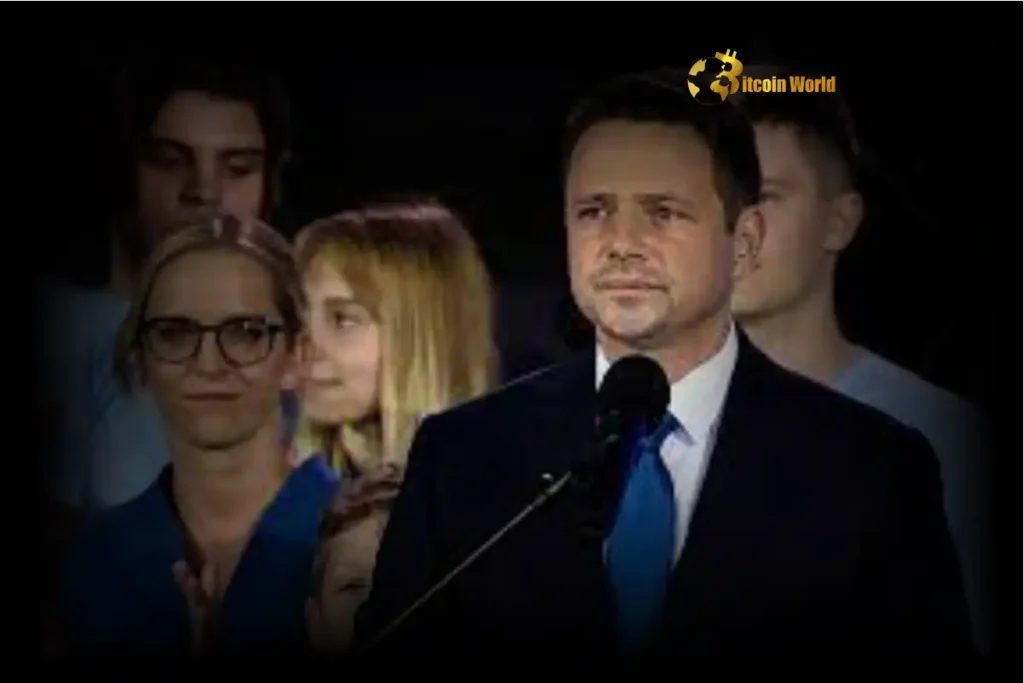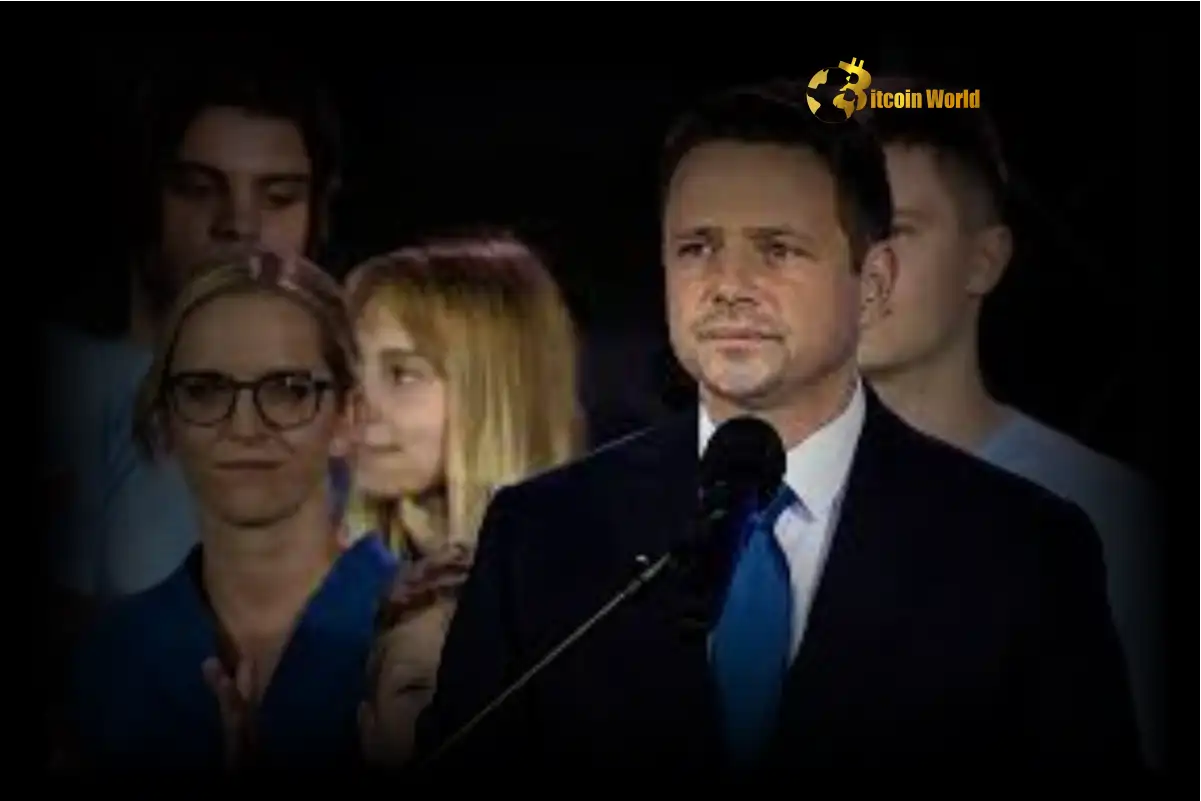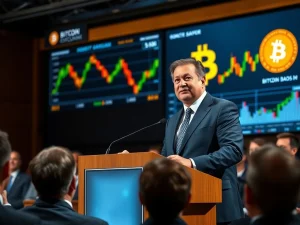Polish Presidential Election: Crucial Run-off Decides Future

[ad_1]
BitcoinWorld

Polish Presidential Election: Crucial Run-off Decides Future
Political events around the globe often send ripples through financial markets, and while the connection isn’t always direct, understanding major shifts in areas like Polish politics can offer valuable context for those tracking global sentiment and economic stability. The recent Polish presidential election has certainly captured attention, heading towards a highly anticipated and tight run-off vote.
What Happened in the First Round of the Polish Presidential Election?
The initial round of the Polish presidential election saw incumbent President Andrzej Duda fall short of the required 50% majority to secure outright victory. This outcome triggered a second-round run-off between the top two candidates. The first round highlighted a nation divided, reflecting distinct visions for Poland’s future trajectory, particularly concerning its relationship with the European Union.
Andrzej Duda: The sitting president, backed by the ruling Law and Justice (PiS) party, secured the largest share of the vote but not enough to win outright. His campaign focused on traditional values, social spending programs, and defending national sovereignty, often putting him at odds with EU institutions on issues like judicial reforms and media freedom.
Rafał Trzaskowski: The challenger, representing the Civic Platform party and the broader opposition, emerged as the clear second-place finisher. As the mayor of Warsaw, he campaigned on a platform emphasizing closer ties with the EU, restoring the rule of law, and fostering a more liberal and inclusive society. He is widely seen as the Pro-EU candidate Poland‘s opposition has rallied behind.
The results set the stage for a head-to-head contest, forcing voters to make a stark choice between two fundamentally different political paths for the country.
Why is This Poland Election Run-off So Significant?
This isn’t just another election; it’s a pivotal moment for Poland. The outcome of this Poland election run-off will have profound implications not only for domestic policy but also for the country’s international standing and its place within the European Union.
Key Stakes Include:
EU Relations: A win for Trzaskowski would likely signal a desire for reconciliation and improved relations with Brussels, potentially unlocking access to frozen EU funds and easing tensions over rule-of-law disputes. A Duda victory, however, could mean a continuation of the current course, potentially deepening rifts with the EU.
Judicial Independence: The ruling party’s controversial judicial reforms have been a major point of contention with the EU. The president holds significant power over judicial appointments and legislation. The outcome will heavily influence the future of the Polish judiciary.
Media Landscape: The independence of public media has also been a hot topic. The president’s stance on media pluralism and freedom is crucial.
Social and Cultural Issues: The candidates hold opposing views on various social issues, including LGBTQ+ rights, which have become prominent in recent political discourse.
The tightness of the race reflects the deep divisions within Polish society on these fundamental issues. The run-off becomes a battle for the nation’s identity and future direction.
What Makes This Contest So Tight?
Polls leading up to and following the first round consistently showed a very narrow gap between Duda and Trzaskowski. Several factors contribute to this:
Factors Contributing to the Tight Race:
The first-round results showed Duda with a lead, but Trzaskowski consolidated support from many of the smaller opposition candidates who were eliminated. The race now hinges on who can better mobilize their base and persuade undecided or swing voters.
Different demographics show varied support:
Duda typically draws stronger support from older, rural voters and those who benefit from the government’s social programs.
Trzaskowski performs better among younger, urban, and more educated voters.
Turnout will be critical. Both campaigns are working hard to ensure their supporters vote in the second round. The outcome could very well depend on which side is more successful in getting their voters to the polls.
How Does Polish Political Stability Matter Beyond its Borders?
While focused on Poland, the election’s outcome has broader implications. Poland political stability is important for regional security and the overall cohesion of the European Union. As a large member state on the EU’s eastern flank, its political direction influences the bloc’s ability to act cohesively on foreign policy, security, and economic matters.
Potential Wider Impacts:
Increased tension or cooperation with the EU can affect investor confidence in the region. A more predictable and stable political environment, especially one aligned with EU norms, is generally viewed positively by international markets. Conversely, prolonged disputes or uncertainty can introduce risk.
For those interested in global markets, including the crypto space, major political events like this are part of the complex web of factors influencing overall market sentiment. While there’s no direct correlation between the Polish presidential election outcome and Bitcoin’s price, shifts in European political stability and economic outlook can contribute to the broader risk-on/risk-off environment that sometimes impacts digital assets.
Actionable Insights: What to Watch For
As the Poland election run-off approaches, here are a few things to keep in mind:
Final Polls and Turnout: Pay attention to last-minute polling data, but remember that turnout is key. High turnout among urban youth could favor Trzaskowski, while strong mobilization in rural areas would benefit Duda.
Campaign Messaging: Observe how each candidate tries to appeal to undecided voters in the final days. Will they focus on policy, values, or fear of the opponent?
Market Reaction: Once the results are clear, watch the reaction of the Polish Zloty and the Warsaw Stock Exchange. This can provide immediate feedback on how markets interpret the outcome regarding future economic policy and EU relations.
EU Commentary: Listen for reactions from Brussels and other EU capitals. Their response will indicate the likely path of future EU-Poland relations.
Understanding these signals can provide valuable context for anyone following European affairs and their potential, albeit indirect, influence on global economic dynamics.
Conclusion: A Nation at a Crossroads
The Polish presidential election run-off presents a clear choice that will shape the country’s future for years to come. With the incumbent President Duda facing a strong challenge from the Pro-EU candidate Poland‘s opposition has rallied behind, Rafał Trzaskowski, the vote is expected to be exceptionally close. The outcome will determine Poland’s relationship with the European Union, the direction of its democratic institutions, and its overall political stability. This crucial decision is being watched closely, not only within Poland but across Europe and by observers of global political and economic trends.
To learn more about the latest geo-political trends, explore our article on key developments shaping macro trends liquidity.
This post Polish Presidential Election: Crucial Run-off Decides Future first appeared on BitcoinWorld and is written by Editorial Team
[ad_2]
Source link









